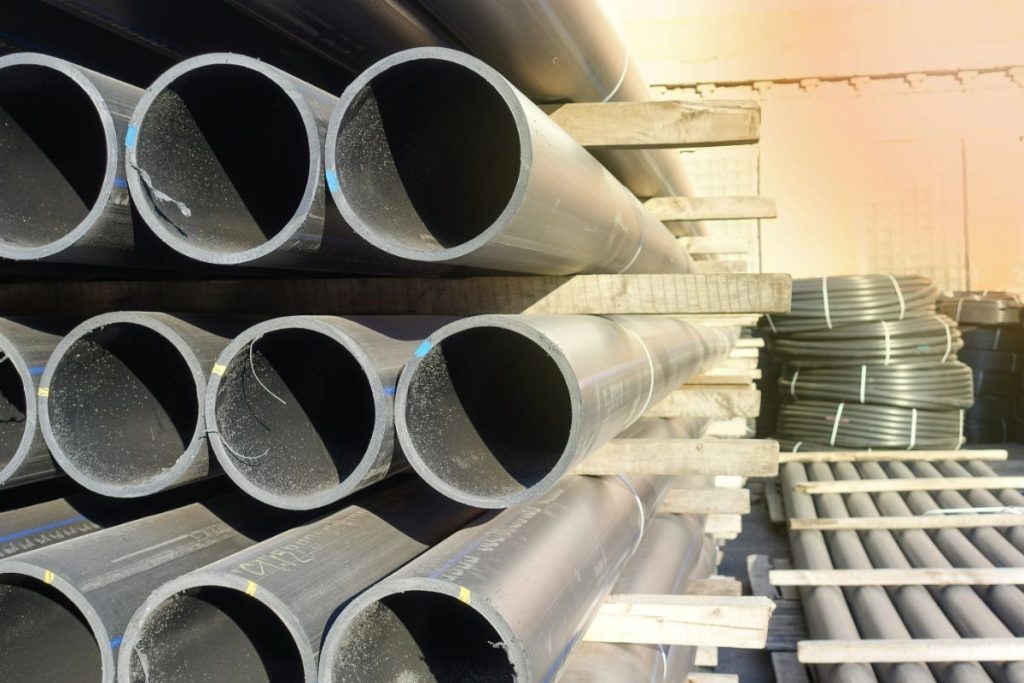Overview
- Electric Resistance Welded (ERW) steel pipes represent a significant innovation in the steel pipe manufacturing sector. Renowned for their durability and precision, ERW pipes are produced by longitudinally welding rolled metal sheets.
- Their cost-effectiveness, efficiency, and superior quality have made them a preferred choice across various industrial and construction applications.
- This article delves into the characteristics, manufacturing process, and diverse applications of ERW steel pipes.
- From their mechanical strength and high production efficiency to their suitability for low to medium-pressure environments, ERW pipes excel in sectors such as oil and gas transport, water supply systems, construction projects, and power plant operations.
Electric Resistance Welded steel pipes are an innovation in the steel pipe manufacturing industry. Known for their durability and precision, they are made by rolling metal and welding it longitudinally across its length.
Their superior quality, cost-effectiveness, and efficiency make them a preferred choice in many industrial and construction projects. In this article, we will explore the characteristics, manufacturing process, and applications of ERW steel pipes. Read on to learn more.
What are ERW Steel Pipes?
These pipes are made through a pressure welding process known as electric resistance welding. For this process, two rolls of uncoiled steel sheets are fused without a welding filler or metal. The rolls are combined by heating the edges of the steel pipe with a high-frequency electric current and applying constant force to form a bond.
They are known for their mechanical strength, higher production efficiency, lower cost, and easy automation. Moreover, they exhibit exceptional strength and can withstand extreme temperatures, pressures, and other external factors.
What are the Main Applications of ERW Pipes?
ERW pipes are used for low to medium-pressure applications, making them ideal for several industries.
Oil and Gas Industry
The industry uses ERW pipes for transporting oil, gas, and petroleum products due to their high durability and resistance to corrosion. These pipes are often present in oil and gas extraction sites. Their manufacturing process makes them ideal for transferring oil and gas products over long distances.
Additionally, their resistance to corrosion makes them last longer, enabling oil and gas companies to reduce maintenance costs. This resistance makes them an essential part of the industry’s piping systems, as they can handle the corrosive elements present, which might otherwise damage the pipelines if not properly managed.
Water Supply and Irrigation
Water supply systems favor ERW wipes, especially in those handling and transporting water and other potentially corrosive elements. The smooth interior of the pipes also helps in managing water flow, running smoothly, and minimizing friction and pressure drops.
These pipes are lightweight and easy to handle and install, reducing labor costs. Their standardized fittings facilitate quick, secure connections and streamline repairs. These features are valued in irrigation systems since they can withstand harsh field conditions such as soil and water.
Furthermore, their ease of installation and standardized fittings simplify the setup and modification of irrigation systems, making them a reliable choice for efficient water distribution.
Construction Industry
ERW steel pipes are favored in the construction industry as structural support in buildings, bridges, and other infrastructure projects. Their high strength allows them to withstand heavy loads, making them ideal for use in columns, beams, and trusses on construction sites.
In addition to structural support, these steel pipes are commonly used in fencing and scaffolding due to their durability and ease of assembly. They provide reliable barriers and stable platforms for construction activities.
On top of that, they are used in cladding and roofing applications, where their smooth surface finish and resistance to corrosion guarantee durability and visual attractiveness.
Power Plants
Power plants, both thermal and nuclear, use ERW pipes to transport coolant fluids, such as water or steam within the plant. Their ability to withstand high temperatures and pressures makes them well-suited for this type of operation.
In nuclear plants, these pipes are used as casing or containment for fuel rods, serving as a barrier. Additionally, their strength and corrosion resistance makes them crucial for transporting radioactive fuel materials.
On the other hand, these pipes are used in thermal power plants to cool systems and steam lines. Their sturdy design facilitates the effective movement of hot fluids and steam, which is essential for producing energy and preserving operational stability.
Key Takeaway
Understanding what are ERW steel pipes begins with grasping their distinctive manufacturing process, setting them apart from other types. Renowned for cost-effectiveness and a range of advantages, these pipes are favored across diverse industries and sectors.
For superior ERW pipes, trust Supreme Steel Pipe Corp. as your premier supplier in the Philippines. Our commitment to quality ensures dependable performance in your piping systems. Explore our range of products or contact us today to acquire top-grade ERW steel pipes for your projects.
